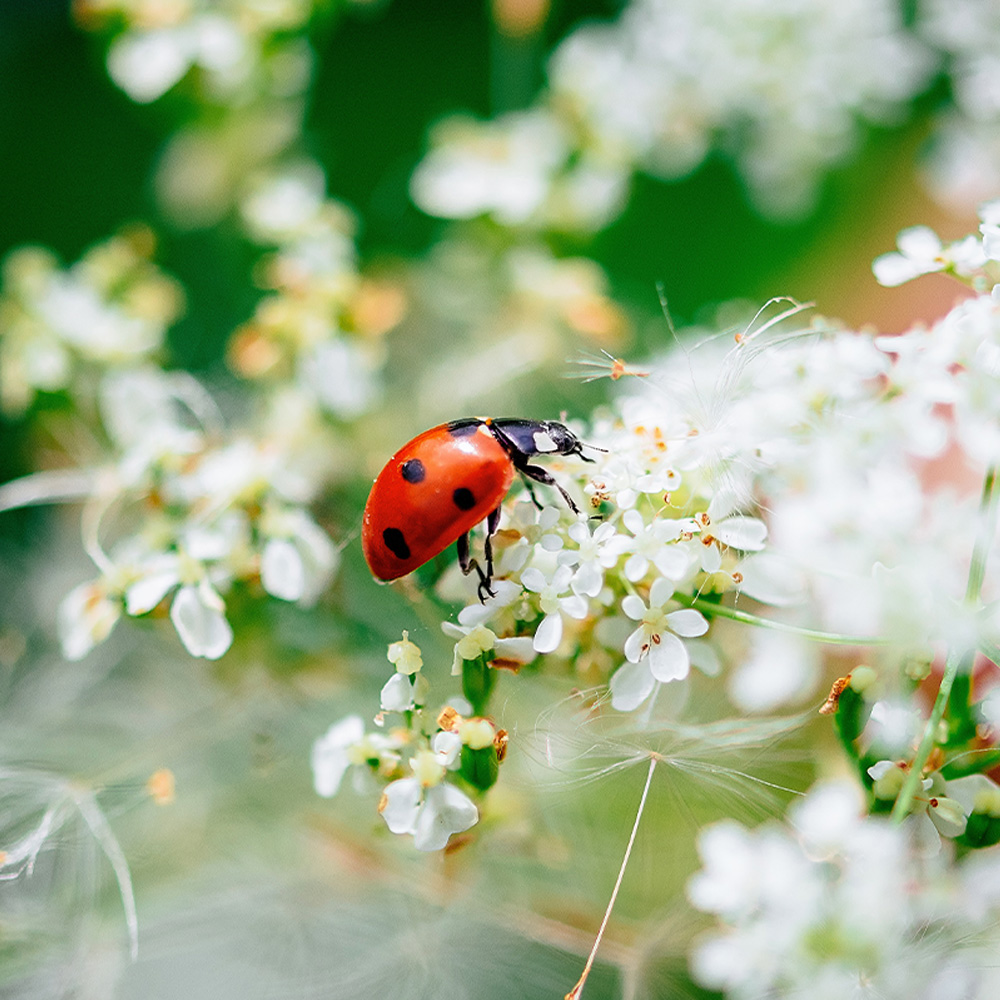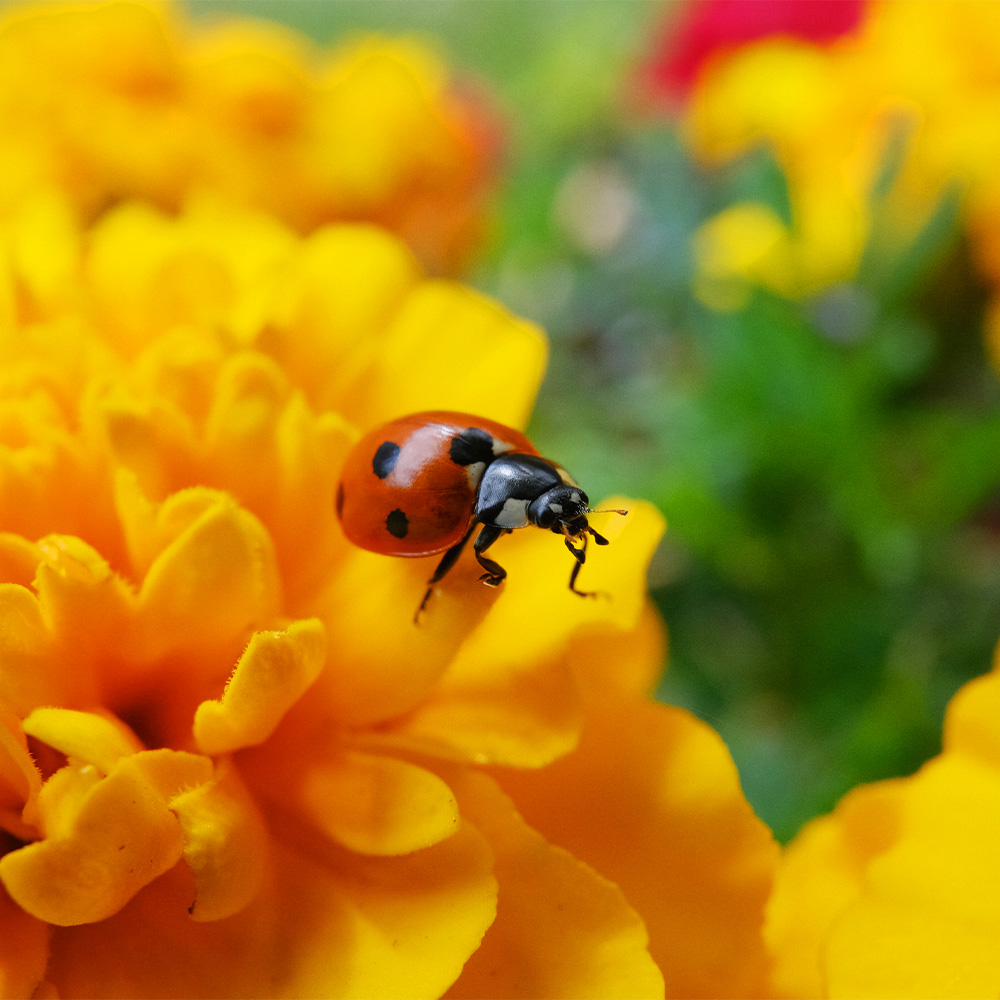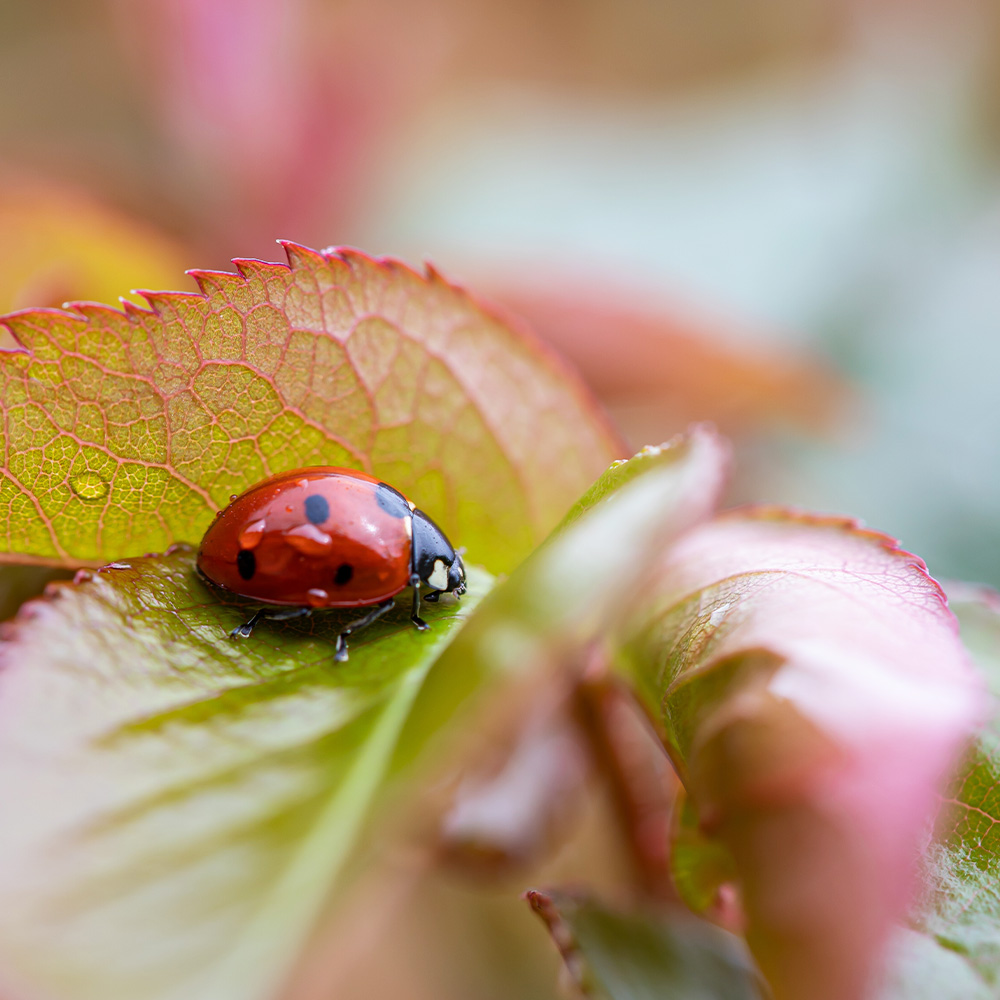Ladybugs are arguably one of the most beneficial insects in a garden. They help plants stay healthy by controlling detrimental pests like aphids and mites without having to resort to chemical pesticides.
Food is what attracts ladybugs and keeps them in the garden. Insects and pollen are their preferred cuisine. Ladybugs will make your garden their home if you have a constant supply of both.
Protect Pests
First and foremost, eliminate the use of pesticides to reduce the population of destructive insects. Pesticides will eradicate both ladybugs and their food source. Instead, invite pest insects with a trap crop. A trap crop is a plant that attracts garden pests away from more desirable plants. Effective trap crops for aphids, a ladybug’s favorite food, include calendula, nasturtium, and sunflowers. Trap crops assist in creating a more balanced backyard habitat where ladybugs and other beneficial insects can thrive.
Provide Plants
Certain types of flowers are more likely to draw ladybugs than others. Planting a wide variety of blooms rich in pollen, especially flat-topped flowers in white and yellow, will provide a suitable and inviting environment for ladybugs. Some great choices are:
| Sweet Alyssum Bachelor’s Button Marigold Butterfly Weed Geranium Yarrow Bugleweed Elderflower |
Coneflowers Cilantro Coreopsis Parsley Cosmos Dill Hibiscus Carrots Tickseed |
Also, it is important to incorporate other plants like grasses, shrubs, and trees into your garden to offer a place for ladybugs to lay their eggs, provide shelter as they rest in the heat of the day, protect them as they search for food, and create a safe environment in which to hibernate during the winter months. To maintain hospitable hibernation conditions, delay cutting back perennials in the fall until springtime.
TIP
Make sure that you recognize the larval stage of the ladybug. This orange-and-black, spiky, alligator-like creature has a voracious appetite and can devour as many as 50 aphids and other insects daily.
It’s not difficult to create a welcoming ladybug habitat in your backyard.
- eliminate pesticides,
- provide food,
- and establish places of shelter.
Follow this simple advice, and you are sure to be successful!








